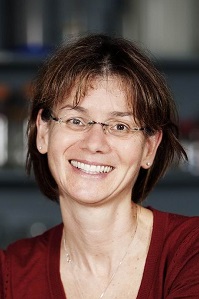Member Spotlight: Harriet Feilotter

Name: Harriet Feilotter, PhD
What is your professional title?
Professor, Dept of Pathology and Molecular Medicine, Queen’s University
Director, Molecular Diagnostic Laboratory, Kingston Health Sciences Center
How did you decide to enter the field/What (or who) brought you into the field?
I was a post doc in the fields of cell cycle and yeast genetics. During the latter part of my post doctoral work, it became apparent to me that human genetics was an interesting field, and I was lucky enough to be able to take some national level courses in this area, which further piqued my interest. I eventually set up a genotyping laboratory at Cold Spring Harbor, looking for genetic markers of bipolar disorder. From there, I followed my husband back to Queen’s (where I had done my undergrad and grad work), and needed to find a job at a relatively small university that had just employed my husband as a biochemist. Because faculty jobs were scarce, I looked around for other types of work, and stumbled upon the Canadian College of Medical Geneticists. Turns out, Queen’s was a training site, and I was lucky enough to get a fellowship to engage in molecular genetics training through that route. Once I passed my exams and was a fellow of the CCMG, I was able to work my way into my current position, running both a research lab and a clinical genetics service in the hospital.
What do you do? How would you describe your role?
I split my time between academic and clinical work. Academically, I run a research lab, where our interests are largely collaborative - we work with many individuals (mostly in cancer research, although not exclusively) to identify biomarkers for prognosis, prediction or diagnosis. We work with other clinical labs to develop clinical assays. We work with pharma to help bring new assays to fruition. We work with a not for profit company that I am part of (Indoc Research) to develop aspects around data handling and management. We work with clinical trials groups to provide genomic data and expertise. On the clinical side, I run the KHSC molecular genetics and molecular pathology lab services, and oversee the entire clinical genetics branch (which also includes cytogenetics). I develop strategic plans, identify augmentations to our test menus, and provide general guidance on the development of these services at our institution. I also currently act as chair of Cancer Care Ontario’s Molecular Oncology Testing Advisory Committee, where I have the opportunity to lead a group that provides advice and guidance to the MOHLTC around molecular genetics.
What degree(s) and/or training did you receive to achieve your position?
I have a B.Sc. in Biology, followed by an M.Sc and a Ph.D., also in Biology. My 5 years of post doctoral work were at Cold Spring Harbor lab. I then did a 2 year fellowship with the CCMG in molecular diagnostics.
What is the greatest challenge you face in your work?
Time management can be an issue, but really, the greatest challenge is in identifying resources to keep all of the things going that I start. Funding for both the research and clinical endeavors is difficult to come by, and I have been lucky to develop some “out of the box” methods for getting things done.
What is the best part of your work as you see it? (most interesting, fun…).
I never seem to have to do the same thing twice. Every day, an interesting opportunity or item seems to come my way- an offer to join a group or committee, an opportunity to change a provincial strategy, a chance to sign out a new kind of assay. The constant change in this field, coupled with the freedom that comes from an academic clinical appointment is really a dream job - I still (after all these years) wake up early and am excited to get to work. Not to say that there aren’t bad days - of course there are. But on the whole, this is an exciting field and I feel every day that what we do, in both the research and clinical labs, really matters to someone somewhere. The patients drive everything that we try to achieve.
This feature is a collaboration between the AMP Membership Affairs Committee and Training and Education Committee. If you would like to nominate an AMP member to be interviewed (self-nomination is fine) please contact ampeducation@amp.org.

















